Our colleague Gloria Rodríguez visited, together with our colleagues Ramón Cabezas and Berta Fresco, the Evaristo Felice dall’Abaco Conservatory of Music, in Verona, between 20 and 24 March.
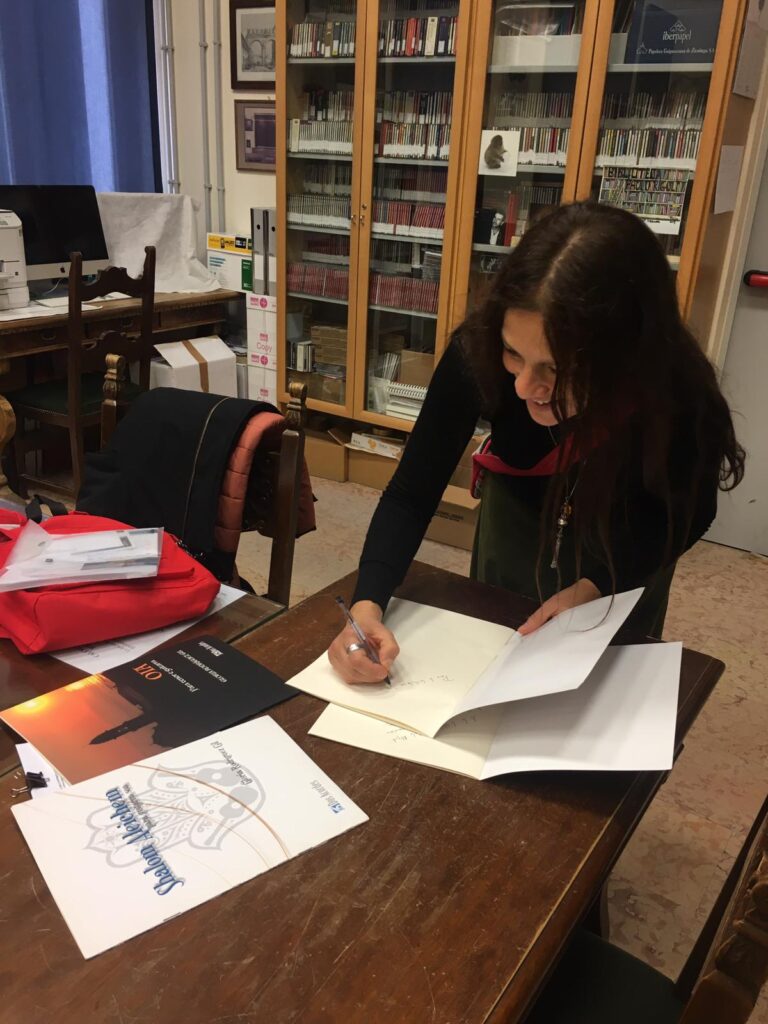
“I couldn’t be more grateful, an enriching experience for sure! For any of the three participating teachers it was our first Erasmus+ mobility, of which I would like to highlight some of the many positive points:
The host conservatory is located in Verona, a multicultural city due to the multitude of tourists that frequently pass through it, but which still maintains its Italian essence. The people are attentive and hard-working, we noticed that they enjoy their work and that they love to welcome people from other countries, even if the command of other languages is not their strong point. We felt a warm and loving welcome but, at the same time, freedom in the sense that we did not feel any control at any time, that is to say, although the planning was quite demanding, we did not feel pressure at any time, everything ran naturally and relaxed.
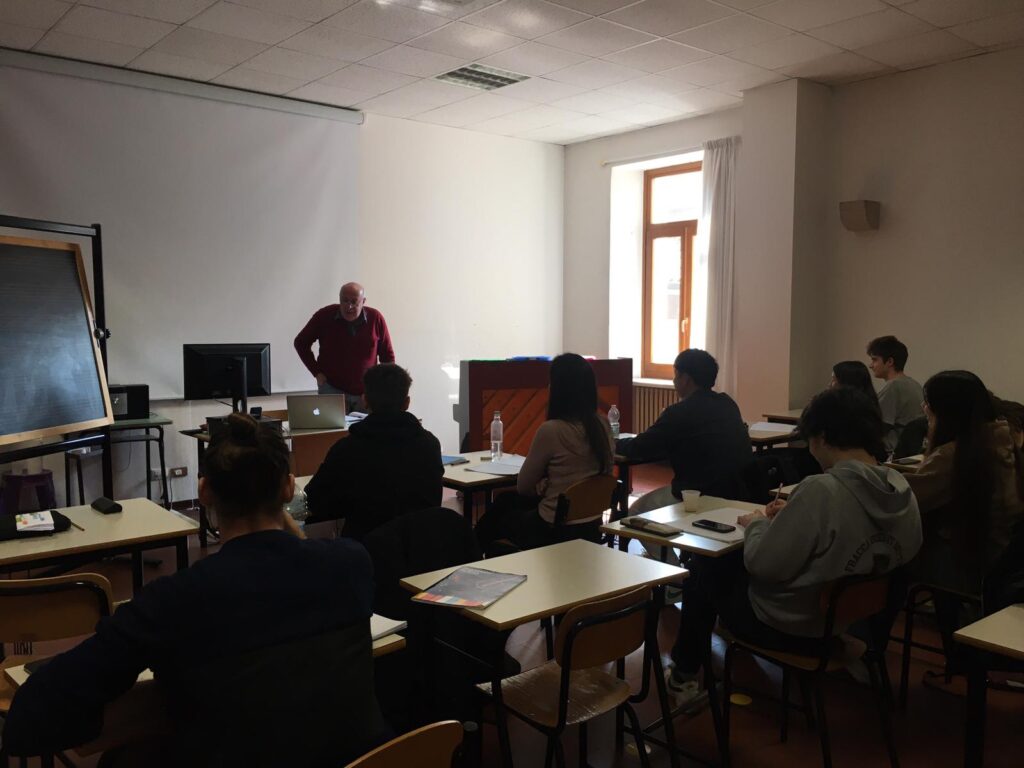
Regarding the conservatory, the building is a beautifully located building, named after Evaristo Felice Dall’Abaco, a violinist and cellist as well as composer born in Verona in 1675. The building is the Giuliari palace, which is attached to the historic basilica of Santa Anastasia (13th century). Originally the convent complex of the basilica, it was radically transformed at the beginning of the 19th century with the current façade designed in 1810 by the architect Bartolomeo Giuliari. Since 1964 they have had a second building, the Boggian House, but even so, the space is still too small for its 550 students.
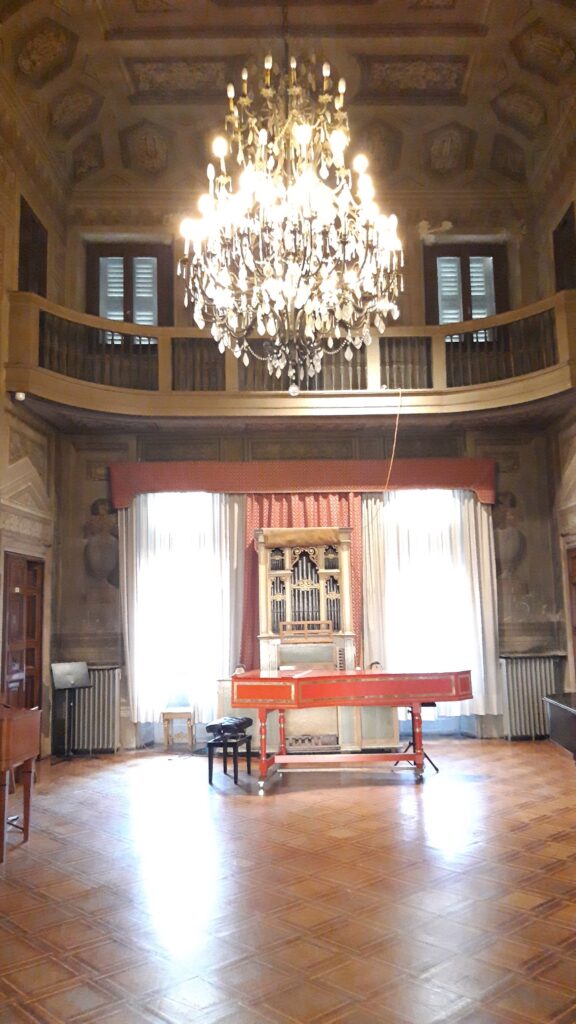
It offers higher studies in various instrumental specialities, singing, early music, composition, electronic music, conducting and, since recently, also music therapy.
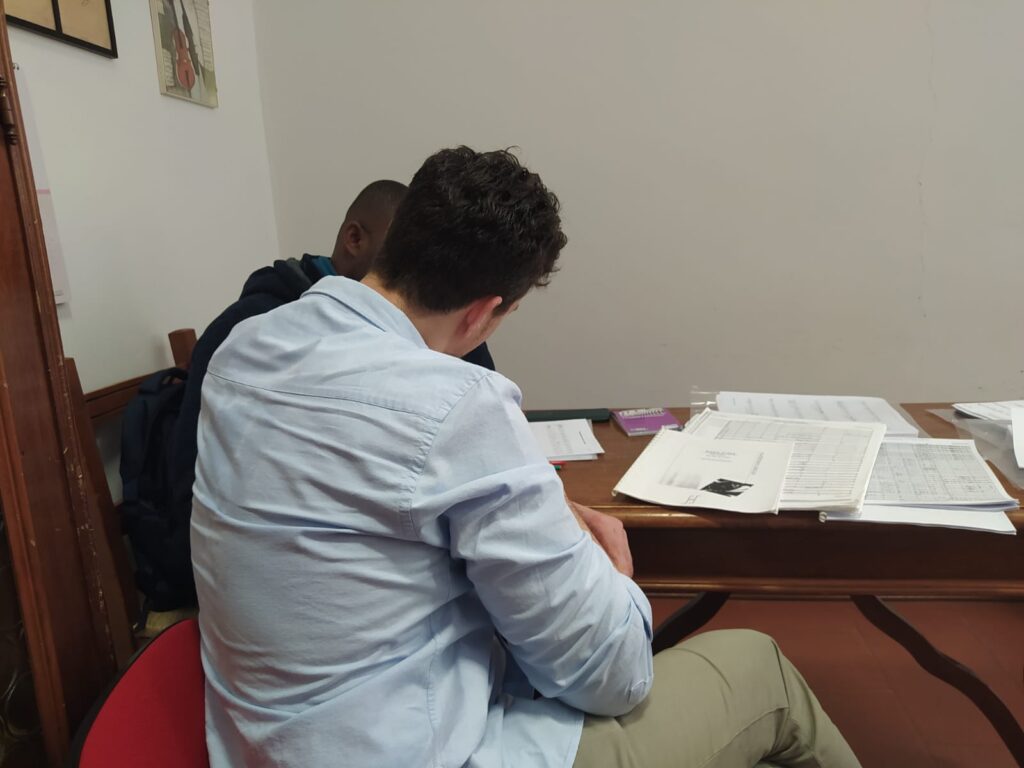
The teachers manage to make you feel good, because they are committed to internationalisation at all levels of education. We noticed that the students are very interested in the classes, they tend to participate a lot in the classes and to do their homework with care. The management of the school is also impeccable and very well coordinated because the non-teaching staff work flat out and are constantly making sure that someone from outside the school feels welcome.
Of course, I cannot fail to mention the good relationship established between the three teachers who shared this Erasmus+ mobility, Berta Fresco, Ramón Cabezas and myself, who at the end of each day talked about our experience in detail, as each of us attended different classes, more suited to our profile and interests.
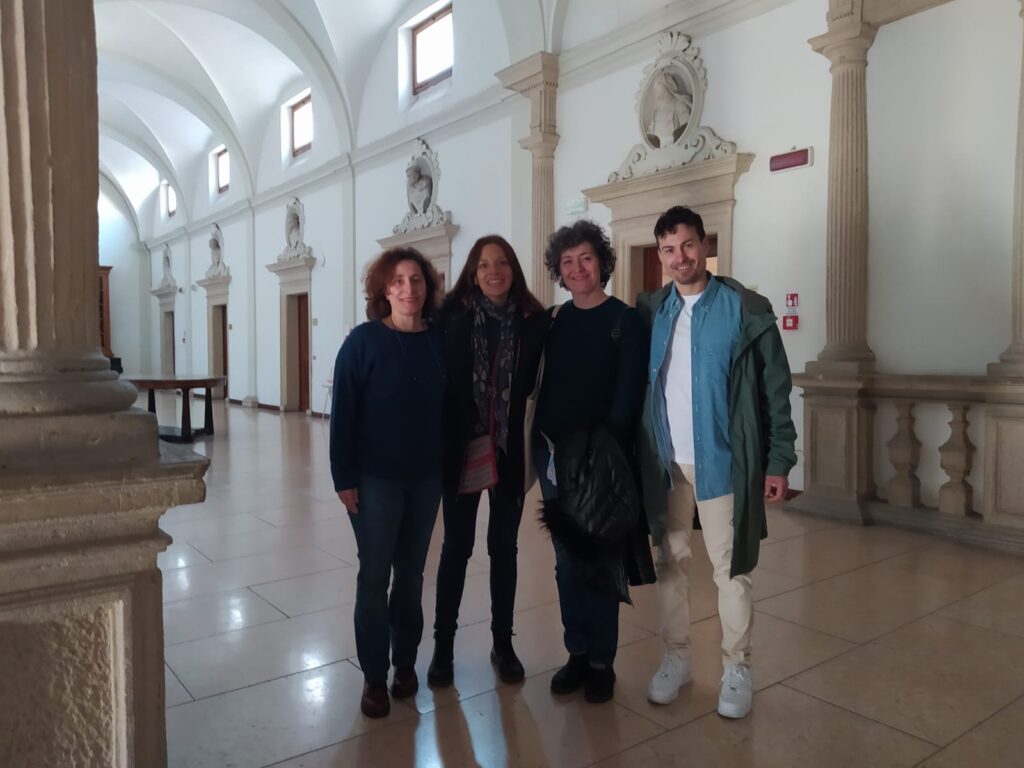
Finally, I would like to share with you what touched me most about this Erasmus+ experience, chatting with the music therapy teacher Prof. Caneva, who explained to me that in this speciality they work in hospitals with patients of various kinds, helping them to overcome their illnesses through music; and chatting with the teacher Erica Nobis, hired by the Government at the request of the director of the Conservatory, who showed a huge heart working more than her share to be able to help students with inclusion problems.
Thank you Erasmus+ programme for existing, thank you Virginia Lis for your involvement in facilitating this established relationship, and above all, thank you Sara Peral for making it possible for this programme to be part of our CMUS Vigo”.
Gloria RG
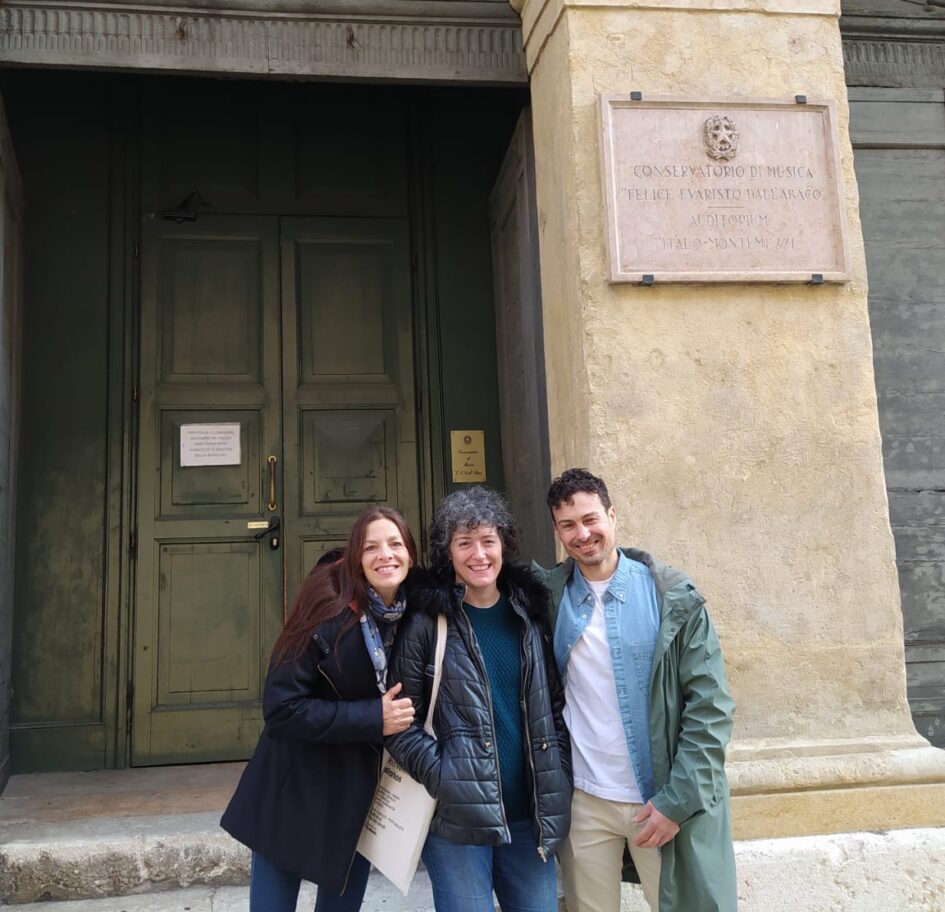
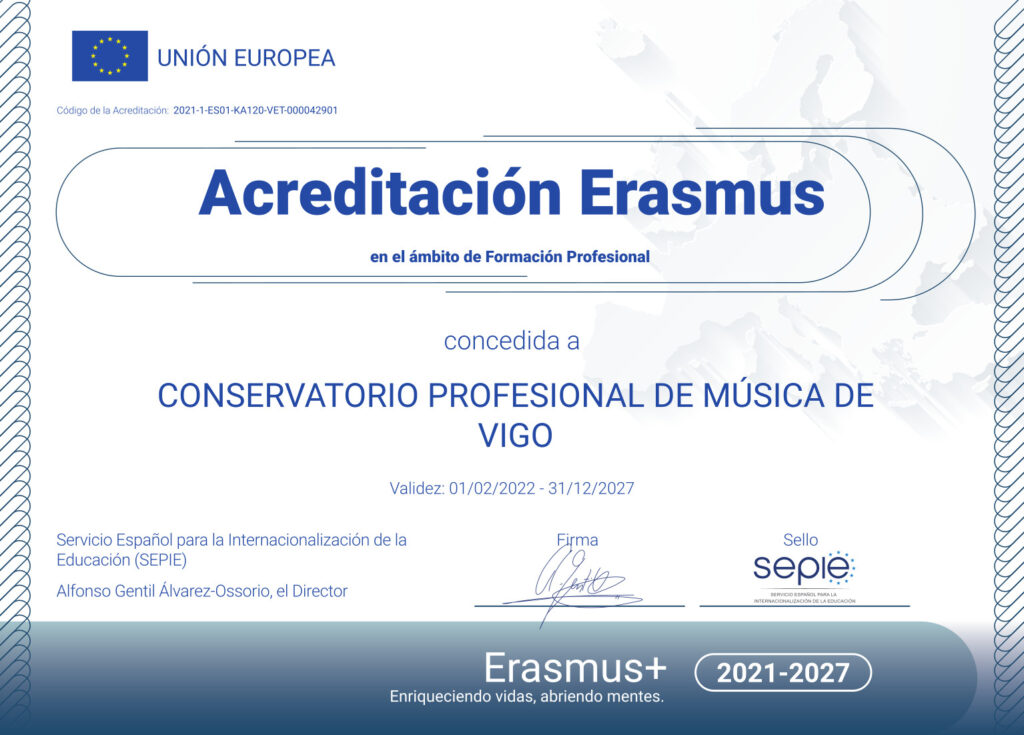

Leave a Reply